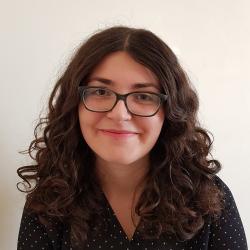Limits and Sustainable Development
 |
TBC
|
Dr Maria GavrisModule Leader |
Option - Final year only |
Term 2 |
15 CATS |
10 x 2 hour seminars |
|
Available to students from outside GSD by application |
Principal Aims
This optional module involves an in-depth interdisciplinary exploration of the concept of 'limits' in the context of sustainable development. The module is open to all final year students in GSD and Liberal Arts, and consists of ten weekly two-hour workshops, in which we will discuss the following complex questions:
What is the relationship between ‘limits’ and ‘scarcity’? Are there objective natural limits to development, or are any limits purely subjective and socially created? What is the nature of limits? What happens when we cross them? Can ecological limits be overcome? Are there technical solutions to the problem of limits? Is the crossing of limits irreversible? How have ecological limits been interpreted in art and what can we learn from this?
Syllabus
The module will start with an overview of the rise and fall of the debate around limits, beginning with the ‘Limits to Growth’ report as a highpoint in the 1970s, and then documenting the various criticisms of this advanced by ‘ecological modernisers’ in the 1980s and 1990s, before then engaging with the revival of the concept of limits after ‘peak oil’, in connection with the emergence of related concepts, such as ‘planetary boundaries’ in the ‘hard’ sciences or ‘postgrowth’ in the social sciences.
In particular, we will pause to examine the recent debate in ecological Marxism between the dialectics of nature approach (there exist objective natural limits to capitalist accumulation) and the production of nature approach (limits are subjective and socially created because pristine nature no longer exists and nature itself is now the product of capitalism).
We will also examine how ecological limits have been interpreted in art (e.g. speculative fiction) and what we can learn from this. We will consider what happens when limits are crossed, and how this is connected to the current global polycrisis (interconnected ecological, political, social and economic crises).
Learning Outcomes
By the end of this module, students will be able to:
- understand and critically engage in debates about limits and sustainable development
- assess and apply different theories and ideas on the nature of limits and what happens when they are crossed
- write critically about limits and sustainable development, addressing the interdisciplinary nature of the topic
- make connections between the various concepts related to limits (e.g. scarcity, boundaries, thresholds etc) and represent these in the form of a concept map
Employability Skills
Through this module, you will develop a number of different skills that are sought by employers which will support your professional development. We have highlighted this to enable you to identify and reflect on the skills you have acquired and apply them throughout your professional journey including during the recruitment processes whether this on an CV/application form or at an interview.
- An in-depth understanding of concepts and theories around limits and sustainable development and an ability to apply them
- An ability to critically engage in debates around the nature of limits and the consequences of crossing them
- An ability to write critically on the topic of limits while addressing the interdisciplinary nature of the topic
- Critical thinking
- Analytical skills
- Written and verbal communication
- Organisation and visual representation
- An ability to undertake independent learning
Assessment
- Participation 10%
- Concept map + explanation 40% (1000 words)
- Book or article review 50% (2500 words)
Please note: Module availability and staffing may change year on year depending on availability and other operational factors. The School for Cross-faculty Studies makes no guarantee that any modules will be offered in a particular year, or that they will necessarily be taught by the staff listed on this page.
